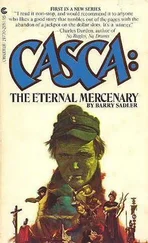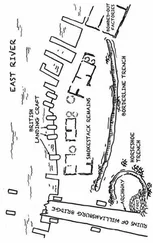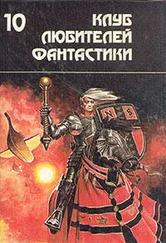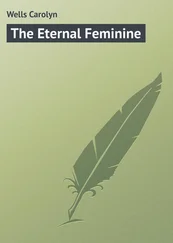I first learned all this six years ago when Grandma passed away. After the forty-ninth-day memorial service for her, Grandpa asked my sister and me to visit him, and then told us about our real grandfather. I was far more shocked that I had no blood ties to the man I had always thought of as my grandfather.
Grandpa had doted on my sister and me since we were young. And he got along great with our mother, even though she wasn’t his biological daughter. After remarrying her second husband, my grandmother bore two sons (my uncles). And Mom and her stepbrothers got along well.
Even after learning of the existence of my real grandfather, I didn’t especially feel anything towards him. He had died thirty years before I was born, and since there wasn’t a single photograph of him anywhere in the house it was impossible to even feel sorry for him. It’s not a nice comparison, but it was as though a ghost had suddenly appeared.
Grandpa had apparently heard little from Grandma about her first husband. All he knew for certain was that her first husband had been a naval aviator who died as a kamikaze pilot. Mom had no recollection of him at all. She was three when he died, but he had been away at war well before then.
“Why are you researching that man?”
I purposely referred to him as “that man.” I had Grandpa for a grandfather. I resisted the idea of calling my biological grandfather “Grandpa.”
“The other day out of nowhere Mom said, ‘I wonder what my late father was like. I don’t know anything about him.’”
“Yeah,” I said, getting up from bed.
“When I heard Mom say that, I found myself wanting to help her. I understand how she must feel. I mean, it’s her real father. Of course Grandpa is important to her, and she thinks of him as her father. But it’s like, those feelings aside, she’s curious about what kind of person her actual father was.”
“But why now?”
“Maybe ’cause she’s getting old?”
“Doesn’t Grandpa know anything else about him?”
“Apparently not. Seems Grandma didn’t tell him very much about her first husband.”
“Hmm.”
I loved Grandpa. It was because he’s a lawyer that I had decided to sit for the bar. A diligent man, he’d previously worked for Japan National Railway, but in his thirties he passed the bar and became a lawyer instead. Granted, he had the academic chops, having studied law at Waseda University. In practice, he ran around helping the needy. To use a worn-out phrase, he was a lawyer who lived in honorable poverty. Watching him inspired me to become a lawyer myself.
No matter how many times I failed the bar or how long I drifted aimlessly, he never got angry. When my mother and my sister discussed their concerns with him, he told them, “One day that boy will land squarely on his feet. So don’t worry about him.” They were disappointed by this.
“By the way, why do you need me to research our grandfather?” I asked her.
“Because I’m busy and can’t let it take up all my time. And besides, it concerns you, too. But I don’t expect you to do this as a favor. I will pay you.”
I smiled wryly but thought, Why not? It’s not like I had anything better to do. “But how can anyone do this research?”
“Have you decided to help out?”
“No, I just wondered if you had a clue to go on or something.”
“Nothing at all. I don’t even know if he had any relatives. But I have his name, so it should be possible to find out what sort of unit he was with.”
“You really expect me to hunt down people who were in the same unit and ask them what kind of man he was?”
“You’re a sharp one, Kentaro.”
“Oh, give me a break. First of all, this was sixty years ago. Even if someone who knew him then is still alive, I can’t imagine they’ll remember much if anything about him. Besides, most of them are dead by now.”
“We’re discussing your biological grandfather, you know.”
“Well, sure… But I don’t especially care to learn about him.”
“But I do!” my sister said in a forceful tone. “He was my real grandfather, and I’m keen to learn what kind of man he was. Heck, he’s your roots, too.”
I wasn’t particularly moved by her speech, but I didn’t feel like arguing with her.
“So, will you or won’t you help?”
“Okay. I’ll do it.”
I wasn’t totally incurious about our grandfather, but the real reason I accepted her request was nothing more than a desire to escape my boredom. Plus, there was the money.
The next day I met up with my sister in Shibuya, to talk about things over lunch. Of course, it was on her. We chose a chain restaurant that served Italian. Keiko had on very little makeup, as usual, and a worn-out pair of jeans.
“Actually, I might be working on a pretty big gig. I’ve been recruited by a newspaper company for its project on the sixtieth anniversary of the end of the war,” she said with a hint of pride, naming the major newspaper.
“Wow, that’s great. That’s quite the leap up from a crummy little magazine.”
“Don’t call it crummy,” she pouted.
I apologized.
“And if everything goes smoothly, they might publish my book.”
“Oh, really! What kind of book?”
“A collection of war testimonials. I don’t know yet if it’ll really be published. I’ll probably need a co-author. But anyways, that’s on the table, too,” she said, eyes sparkling.
I see. So that’s what’s up, I thought, finally comprehending. She was using the research on our grandfather as a dry-run. I was sure she genuinely wanted to learn more about him for her sake as well as Mom’s. But more so, her objective was to hone her skills as a writer through our investigation. After all, she’d never even brought up our dead grandfather before now.
To be frank, I didn’t think my sister was cut out for journalism. Sure, she was strong-willed, but she was too considerate. She was the type who couldn’t ask tough or probing questions of her interviewees. Moreover, having a personality where your feelings showed right on your face had to be a disadvantage. She was likely already aware of these things even without me stating them. Perhaps she thought of the end-of-WWII anniversary project as a chance to peel off that skin and reinvent herself.
“So, is it true that he died as a kamikaze pilot?” I asked.
“Grandpa said as much,” reminded Keiko, twirling pasta onto her fork. “We have amazing family,” she added, sounding like she was discussing someone else’s.
“Sure do,” I chimed back, echoing her distant tone.
“But the kamikazes were terrorists.”
“Terrorists?”
“Someone at the newspaper whom I met called them that. He said, ‘From today’s perspective, kamikaze pilots were on par with the people who flew planes into the World Trade Center.’”
“Hmm… I feel like it’s wrong to label the kamikazes as terrorists.”
“I don’t really know, but some people see it that way. According to that journalist, although the era and context seem totally different, they are structurally similar. He said both were fanatic patriots and martyrs.”
It was an audacious opinion, but I found myself unable to dismiss it out of hand.
“The person who told me this is quite brilliant. He used to be on the political beat for the newspaper. We were talking over lunch and I mentioned that my grandfather was a kamikaze pilot, so he lent me a book of last words by kamikazes. It brimmed with words like ‘submitting’ and ‘fealty.’ The most surprising thing was how the pilots were totally unafraid of death. Actually, some of the wills expressed joy over the prospect of dying a glorious death for the nation. When I read it I thought, ‘So there was a time when Japan had a hell of a lot of fanatic nationalists, too.’”
Читать дальше
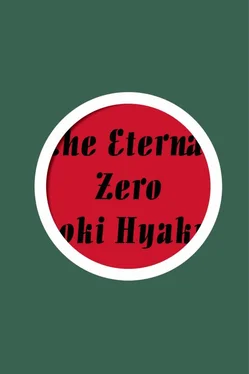
![Nick Cracknell - The Quiet Apocalypse [= Island Zero]](/books/28041/nick-cracknell-the-quiet-apocalypse-island-zero-thumb.webp)


